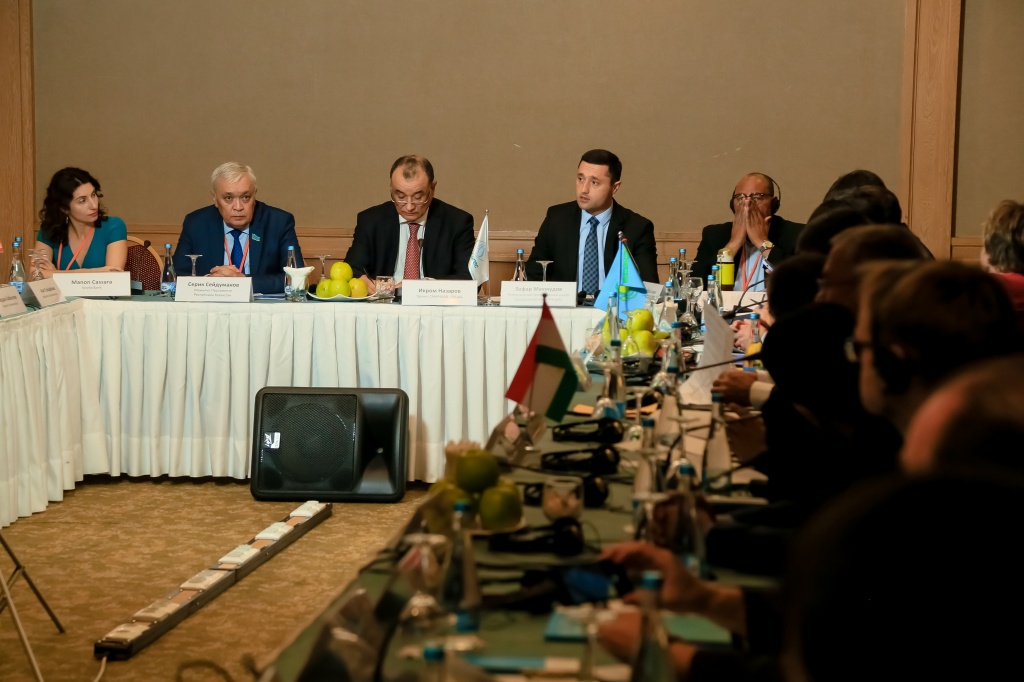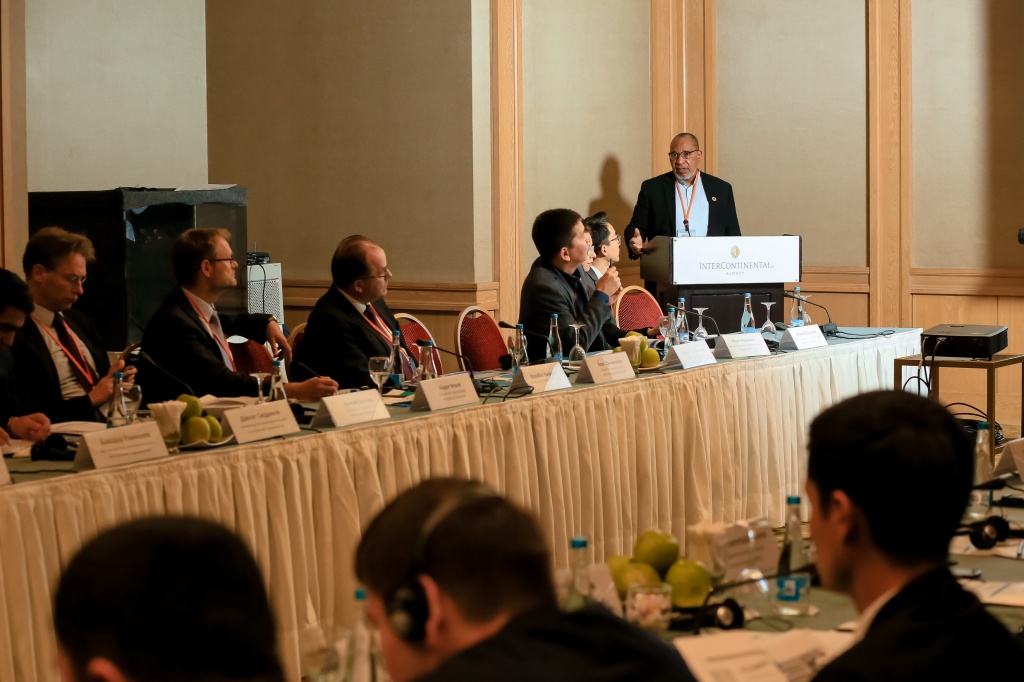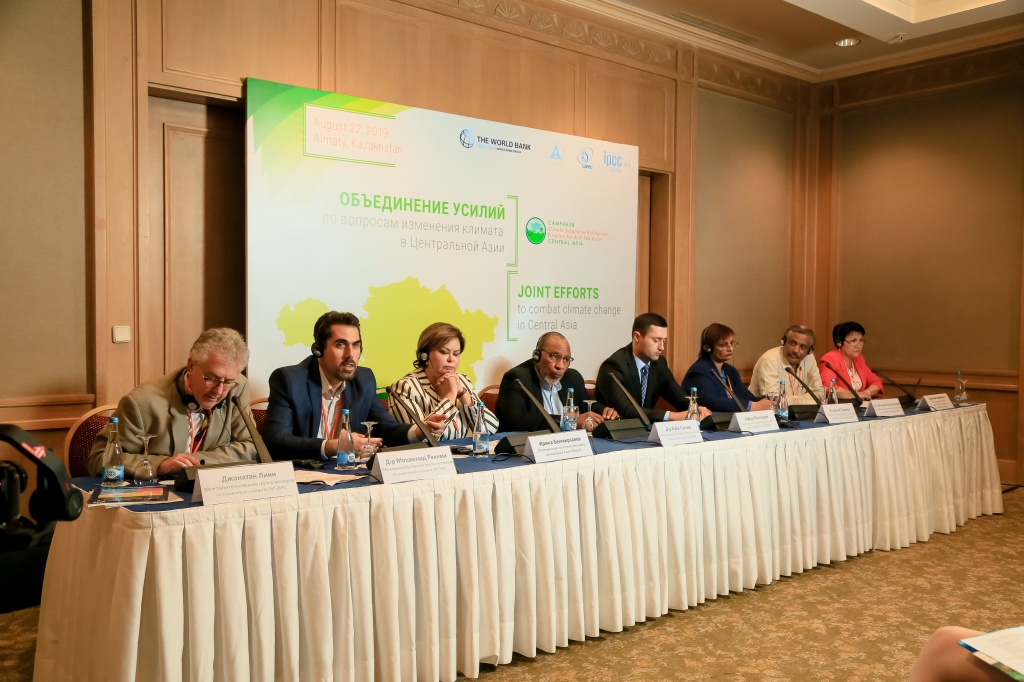New frontiers for climate cooperation
During the period of 21-22 August 2019 delegates of the Intergovernmental Panel on Climate Change (IPCC) visited Kazakhstan to establish a dialogue with scientists, specialists of the state agencies, deputies, and journalist from the Central Asian countries.
The imbalance in the planetary climate system is a very complex, broad issue encompassing a plurality of components and demanding considerable resources for research. Taking this into account the role of the scientific community and active exchange between experts from different countries is vital. However, not all regions take part in an intensive process of climate information sharing. The Central Asia is one of these regions.

To bridge this gap, the Central Asia Regional Environmental Center (CAREC) held a meeting with representatives of IPCC and delegates of MFAs and Parliaments of the Central Asian states, scientists and other stakeholders, and CA media representatives, organized in the framework of the Climate Change Adaptation and Mitigation Program for Aral Sea Basin.
The delegation included the following people:
Youba Sokona, Vice Chair of the Intergovernmental Panel on Climate Change (IPCC), who has 35 years of experience in energy, environment and sustainable development in Africa;
Joy Jacqueline Pereira, Professor and Principal Research Fellow at the Southeast Asia Disaster Prevention Initiative, Kebangsaan University of Malaysia's Institute of Environment and Development (SEADPRI-UKM), member of the Malaysian Academy of Sciences;
Jagdish Krishnaswamy, coordinating lead author of the special IPCC report on climate change, desertification, degradation, sustainable land management, food security and greenhouse gas flows in terrestrial ecosystems;
Mohammad Rahimi, expert reviewer of the IPCC Special Report on RES and Climate Change Mitigation, lead author of the IPCC Special Report on Extreme Events;Jonathan Lynn, Head of Communications and Media Relations, IPCC.
During the meetings Youba Sokona presented the key messages of the IPCC Fifth Assessment Report (AR5) and the Special Report on Global Warming of 1.5 °C (SP1.5), highlighting the fact that continuing emissions of greenhouse gases would cause further warming and exacerbate the existing risks, however, still there were multiple solutions to limit the warming to the level below 2° C.

Jagdish Krishnaswamy reported on the main provisions of the Special Report on climate change and Earth, presenting a set of strategies to help addressing land and climate change problems.
Mohammad Rahimi made a presentation about the science base of climate change, informing about the most serious changes happening on the planet today and the risks we would face in the future.
Jonathan Lynn shared information about how reports and IPCC reviews get prepared, the stages of their preparation and how and who uses these reports subsequently.
In addition, IPCC delegates participated in a workshop for media representatives of Central Asia, where they presented the activities, goals and objectives of IPCC. The participants received the key documents: the IPCC Special report on Global Warming of 1.5 °C published in October 2018 and the Fifth Assessment Report, which outcomes indicate that climate change is real and is caused by human activity.
For two days the IPCC experts were focused on our region and increasing awareness as well as engagement of the scientific community in conducting research related to climate change, which is very important in data gathering to prepare the Sixth Assessment report on climate change.
The group of experts and national coordinators of the IPCC also held a press conference on the outcomes of the two-day work, dedicated to the IPCC activities and reports, the problem of climate change and its impacts on everyday lives of people, including in our region.

According to the comments of the Chair of EcoForum of civil society organizations in Kazakhstan Vadim Ni, there is now a reason to hope that this meeting will serve as an additional impetus for new research of climate change in the Central Asia and inclusion of its outcomes into the new IPCC reports.
_____________________
Climate Change Adaptation and Mitigation Program for Aral Sea Basin (CAMP4ASB)
